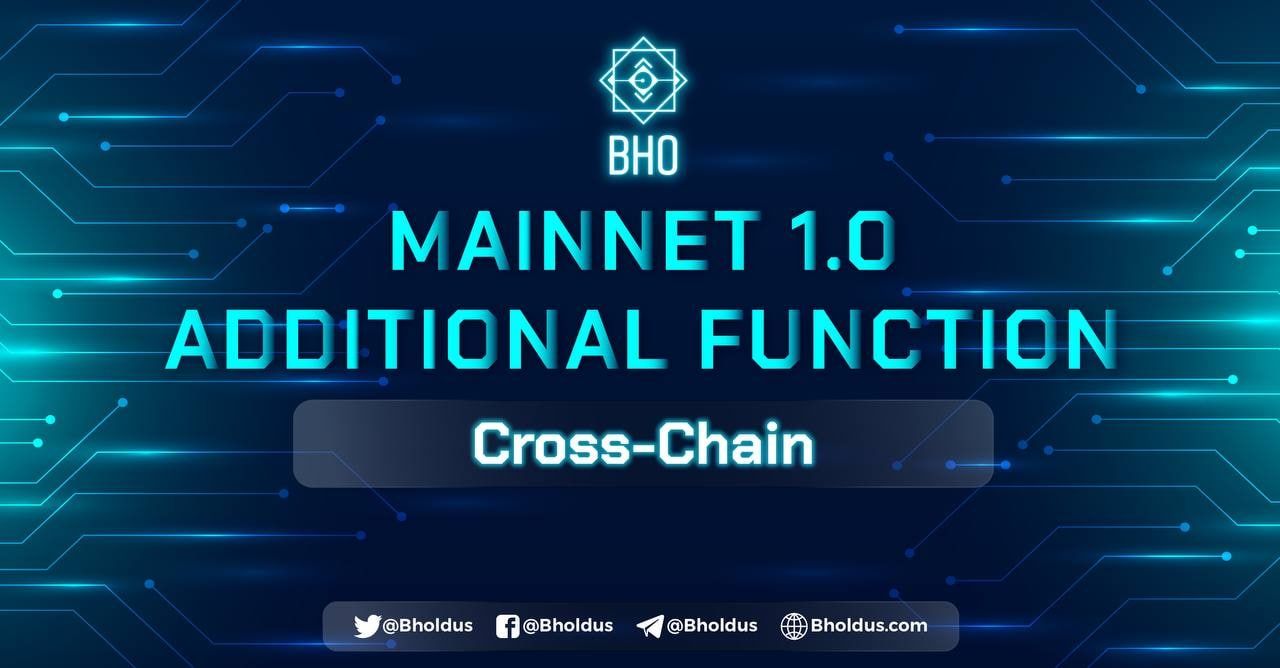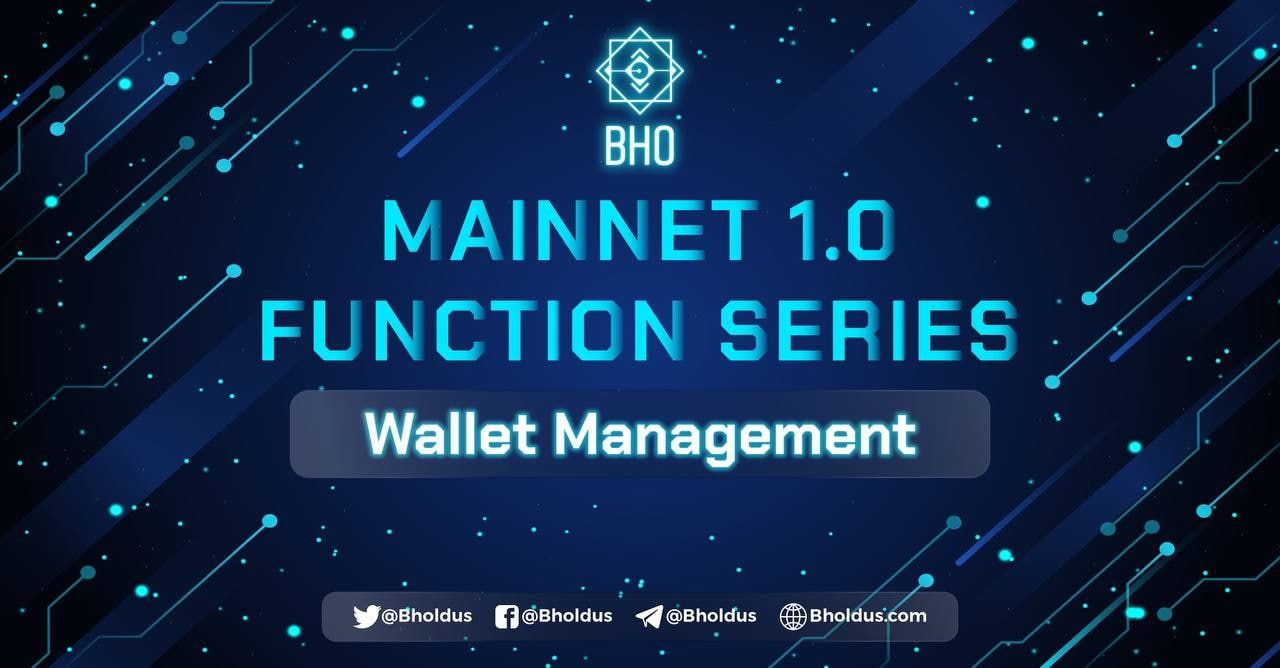- Blog
- Crypto News
- What is Crypto? A Guide to Crypto Markets for Effective Investment
What is Crypto? A Guide to Crypto Markets for Effective Investment
- 1. What is Crypto?
- 2. History of Crypto
- 3. Compare Cryptocurrencies & Electric Money
- 3.1 What is Electric Money?
- 3.2 What is Cryptocurrency?
- 4. The process of formation and development of Crypto
- 4.1 Formation from the 90s to 2009
- 4.2 Development from 2009 to present
- 5. Types of Cryptocurrencies
- 5.1 Coin
- 5.2 Bitcoin
- 5.3 AltCoin
- 5.4 Token
- 5.5 Distinguishing Coins and Tokens
- 6. Crypto Exchange
- 6.1 CEX
- 6.2 Decentralized exchanges (DEX)
- 7. Current Cryptocurrency Wallets
- 7.1 Hot Wallet
- 7.2 Cold Wallet
- 7.3 Exchange Wallet
- 8. Basic application of Cryptocurrency
- 8.1 Replaces transaction and payment functions in a bank
- 8.2 Asset storage and management
- 8.3 Smart payment method
- 8.4 Attractive investment channel
- 9. The Working Principles Of Cryptocurrency
- 9.1 Building on Blockchain Platform
- 9.2 Validation via Proof of Work or Proof of Stake
- 9.2.1 Proof of Work
- 9.2.2 Proof of Stake
- 10. What are the basic characteristics of Cryptocurrency?
- 10.1 Anonymity
- 10.2 Encrypted
- 10.3 Peer-to-peer (P2P) Cryptocurrency
- 10.4 Not depending on any 3rd party
- 10.5 Decentralization
- 10.6 Globalization
- 10.7 Digitalization
- 11. How to own Cryptocurrency
- 11.1 Mining
- 11.2 Trading on E-Markets
- 11.2.1 Buying and Selling Coins on an Exchange
- 11.2.2 Through Contracts for Difference (CFDs)
- 12. Popular ways to invest in cryptocurrencies
- 12.1 Trade
- 12.2 Hold
- 13. What to prepare when investing in Cryptocurrencies
- 13.1 Basic knowledge of Cryptocurrency
- 13.2 Be careful in trading
- 13.3 Cryptocurrency investment requires little or a lot of capital?
- 13.4 Should you invest in Cryptocurrency?
- 14. Benefits and limitations of owning Cryptocurrency
New investors often ask some questions such as: "What is Crypto?" What is Crypto Investment? What is Trade Crypto?. Therefore, in this article, BHO Network will provide knowledge to help readers learn about Crypto. Follow along!
1. What is Crypto?
What is Cryptocurrency? Crypto, also known as Cryptocurrency, is electronic money (Cryptocurrency) issued on Blockchain platforms in the Internet environment.
Cryptocurrency simply is a means of a transaction in the Blockchain environment, similar to fiat money used for exchange in a centralized economy. Thanks to the decentralization and Blockchain transparency, the transaction information is stored and unchanged.
2. History of Crypto
Although it is only a recently emerging trend, the idea of cryptocurrencies has been around since the 1990s. This idea was only successful in 2008 with the Bitcoin project of Satoshi Nakamoto.
According to Satoshi Nakamoto, the Bitcoin money project was created in the form of a peer-to-peer exchange electronic money system. The purchase, sale, and exchange only rely on the encrypted, verified, and stored transactions on the Blockchain block, not the trust between the two parties.
Until now, Bitcoin still holds the position as the most successful Cryptocurrency product, which any other coin has not overtaken. And thanks to Bitcoin, there have been countless other Cryptocurrency projects born. The most prominent of which is Ethereum.
3. Compare Cryptocurrencies & Electric Money
BHO Network will analyze the concept of Cryptocurrencies and electric money for readers to understand the difference, stay tuned.
3.1 What is Electric Money?
Electronic money is also considered a digital currency, issued digitally and traded through the Internet, such as money in an Internet banking account or a transaction wallet like Momo, Moca. The Government guarantees them.
The method of operation is straightforward; users deposit money into their bank accounts. The bank will then put this amount into the user's account, and every time a transaction is required, just enter the correct amount.
The difference between electric money and cash is that the money will be stored online. Competent authorities will guarantee that it will be moved elsewhere and accepted by the other party.
3.2 What is Cryptocurrency?
What is Cryptocurrency? In essence, Cryptocurrency is also a form of electronic money. However, Cryptocurrency will be issued by the creator of the Blockchain project and not the Government or any other monetary authority.
Therefore, Cryptocurrencies carry many risks, mainly because any authority does not guarantee them. All Cryptocurrencies are made from a few lines of code, and sometimes the founder can hide their identities.
In addition, Cryptocurrencies have value only when widely used by the user community. It is not guaranteed by a bank or any reputable monetary organization that keeps these coins for exchanging fiat money.
Therefore, many MemeCoins or scam Coins have been born, causing significant damage to the owners due to the resell inability. And since then, the Cryptocurrency market has inadvertently left many wrong impressions on many potential investors.
4. The process of formation and development of Crypto
Join BHO Network to learn about the history and types of Crypto available on the market today in the content below.
4.1 Formation from the 90s to 2009
As mentioned above, during this period, Cryptocurrencies developed. Thanks to the technology boom in the 90s of the last century. Many Cryptocurrencies were born, such as Flooz, Beenz, and DigiCash, and then quickly disappeared due to many outstanding issues such as poor security, fraud, internal conflicts, and other financial problems.
In 2009, Satoshi Nakamoto's Bitcoin money project appeared as a bright spot for the Cryptocurrency market. They are considered the first Cryptocurrency to operate decentralized, not subject to any control or management from the Government and other competent authorities.
4.2 Development from 2009 to present
In terms of investment
Investors and society no longer have a strict view of Cryptocurrencies. In the past, investing in Cryptocurrencies was just a scam, causing investors significant losses, even fortunes. Despite mixed opinions, Bitcoin has remained in the market for 13 years with a strong growth rate with a total capitalization of up to trillions of dollars.
In addition to investors, large financial funds gradually realize the vast profits Cryptocurrency investment can bring. Huge funds like Grayscale, Square, and Microstrategy have bought a lot of BTC and other AltCoins, promising this breakthrough in market capitalization.
In terms of application
Many banks or merchants like Tesla, Paypal, and Apple Pay have also adopted the Bitcoin payment method. Some countries have also accepted Bitcoin as a means of payment, typically El Salvador. Along with the adoption, El Salvador also passed the Airdrop decree, $30 free worth of BTC per resident.
Therefore, this move will open up a new future for Cryptocurrencies. Everyone will soon accept Crypto. In Vietnam, the Government is no longer too strict about Blockchain technology. Instead, some research papers have been applying Blockchain in many fields. Typically, the education sector stores university diploma data.
5. Types of Cryptocurrencies
For an overview and best understanding of the type of assets you intend to invest or hold, we will look at each type in the circulating Cryptocurrency market to understand its potential, possibilities, and risks.
5.1 Coin
A coin is a currency that is issued and developed inside each given Blockchain. The purpose of Coin is to solve the problems of payment, security, and application development. Each Blockchain will have only one Coin. For example, Bitcoin Network will have a Coin of BTC, the Ethereum platform will have a Coin of Ether.
5.2 Bitcoin
Surely everyone knows about this Cryptocurrency. This is the world's first Cryptocurrency and is the starting point for developing the Crypto market later.
5.3 AltCoin
AltCoin meant Coins or Tokens other than Bitcoin and was created as an alternative to Bitcoin. This is a combination of two words: Alternative and Coin. Some major AltCoins are Ethereum (ETH), Solana (SOL), LiteCoin (LTC), and many more AltCoins. Any other Coins or Tokens other than Bitcoin will be referred to as AltCoin to be simple.
5.4 Token
A token is similar to a Coin in that it is also issued on Blockchain. However, the difference is that the Coin will have its Blockchain, and the Token must exist on another Blockchain.
For example, the KONO Token is stored and traded on the Ethereum Blockchain. If it is a Coin, it will have to exist on the Konomi Blockchain. But in fact, there is no Blockchain named Konomi.
However, there are also exceptions. For some projects, when they have grown strong enough, they will aim to create their Blockchain, then the Token will turn into Coin.
An excellent example of this transformation is the SOL token (the Token of the Solana project) which was previously stored and traded on the Ethereum blockchain. But after the Mainnet, Solana has its Blockchain, turning SOL into a coin, enabling other tokens to be created on this Blockchain.
5.5 Distinguishing Coins and Tokens
In terms of features:
- A coin is considered a means of exchange and value accumulation for payment, security, investment, and development of that blockchain network. So, let's just say that each Blockchain will have a unique Coin.
- The Token still functions as a Coin; however, it is released by the project building on that foundation Blockchain and adds a few utilities.
Technically:
- The Coin needs to have its exchange wallet platform to send or receive funds. When the transaction is made, the transaction fee will be deducted directly from that Coin's wallet.
- The Token does not have its wallet platform but uses the Coin's wallet. When the transaction is done, the transaction fee will be deducted from the wallet of the Platform Coin.
6. Crypto Exchange
Investors can buy and sell Cryptocurrencies at exchanges; in Crypto, there will be two types of exchanges:
6.1 CEX
Centralized Exchanges (Centralized Exchanges) are exchanges that have an intermediary that controls the exchange and trading of Crypto assets.
Generally, users need to create an account on the exchange for this type of exchange to comply with the Government's KYC (Know Your Customer) regulations. Typical examples of centralized exchanges include Binance, Houbi, Kucoin, Gate.io, Bittrex, BitMax, etc.
6.2 Decentralized exchanges (DEX)
In contrast, users can perform transactions and decentralized exchanges on the Blockchain platform for decentralized exchanges.
A decentralized exchange allows users to make exchanges and payments in their wallets. Only when the licensee authorizes through the Private Key can the transaction happen, ignoring another cumbersome step. Typical examples of decentralized exchanges are Uniswap, Sushiswap, Saber, Quickswap, and Spiritswap.
7. Current Cryptocurrency Wallets
Like all other currencies, Cryptocurrencies also need to have a place to store them, which is a Cryptocurrency wallet. A Cryptocurrency wallet is software that helps users store, trade, and track their current Coin or Token balance.
To help readers have a clear and straightforward view of Cryptocurrency wallets. This article divides e-wallets into three popular wallets today: hot wallets, cold wallets, and exchange wallets. First, let's go into hot wallets.
7.1 Hot Wallet
The hot wallet is an online storage wallet that users will have to secure their accounts with their private key.
Up to the present time, the wallet not only has a storage function but also integrates many other features. For example, swap Coin directly on the wallet without connecting to a laptop, monitor investment portfolios and support storing a variety of Tokens.
For this type of wallet, the top advantage of wallets is that users can conveniently install and access them in many places—including on phone, computer, or browser extension. On the other hand, hot wallets are easy to hack and attack if the phone or computer is infected with a virus. And the wallet can only trade when connecting to the Internet.
So, in general, hot wallets will not have as good security as cold wallets. Typical hot wallet names include TrustWallet, Exodus, Mycelium, Electrum, and Coinbase Wallet.
7.2 Cold Wallet
In contrast to a hot wallet, a cold wallet is physical and can be held in hand. Usually, cold wallets are often used by traders and long-term investors because the security of cold wallets is much higher than that of hot wallets.
Furthermore, when using a cold wallet, users can store it offline. However, the biggest drawback of cold wallets is that the transaction execution process is quite laborious, so it is more suitable for long-term investment goals. Reputable cold wallets that investors often trust are Ledger, Trezor, KeepKey, CoolWallet, and SafePal.
7.3 Exchange Wallet
Compared to hot and cold wallets, exchange wallets are the most used wallet type by traders due to their convenience. First, small investors usually proceed to load Stablecoin on the exchange and buy and sell the Coin they want. They will then tend to want to leave the assets in the wallet to be able to conduct transactions faster.
Second, when the number of transactions is too small, the fee for withdrawing assets to the wallet compared to the total asset value is unreasonable. Therefore, many investors are skeptical and do not accept this fee.
At the beginning of 2021, when the transaction fee for buying and selling Tokens or coins (gas fee) becomes too high, the withdrawal of ERC-20 tokens costs a lot of money. Therefore, some transactions can be up to hundreds of dollars. This amount is unacceptable to retail investors.
Therefore, exchange fees will help investors make transactions conveniently and quickly. In addition, there is no need to spend a hefty gas fee when transferring assets from the exchange to the wallet.
On the other hand, users trade directly on the exchange; they also face many risks such as scams or shutting down the exchange. This leads to users not being able to withdraw money.
8. Basic application of Cryptocurrency
Although it only works on the Internet, the scope of Cryptocurrency application is no less than the fiat currency that we often use. Let's see what those applications are in the content below.
8.1 Replaces transaction and payment functions in a bank
What is Trade Crypto? Trade Crypto is a Cryptocurrency transaction and does not require any association with any bank. All transactions and exchanges occur on the Internet at fast and instant speed.
Therefore, it can be said that Cryptocurrency can replace the functions of banking services. If accepted as a payment method in large systems, it will save a lot of time and payment costs.
8.2 Asset storage and management
Only Cryptocurrency users have full rights to access, use and manage the property. No person, agency, or organization shall have the authority to seize.
Because these assets undergo encryption, only the owner has control over it, regardless of where the user is or in what state. Therefore, electronic money is an effective way for each individual to store the value of their assets.
8.3 Smart payment method
Although still facing many controversies about its credibility. However, Cryptocurrencies still prove their position by becoming the official means of payment for many major global payment systems.
More than 28,000 ATMs are set up to serve for sending and withdrawing Bitcoin in the US alone. Using Bitcoin is now like fiat money; you can ultimately use it to pay for various goods and services.
Transferring to the payment acceptor will be much faster than transferring through the bank's Internet banking service if using Bitcoin for payment. The next bright spot is the low transaction fees, maybe even free.
8.4 Attractive investment channel
Cryptocurrency has the potential to bring huge profits to traders; surely, risk-loving investors cannot ignore this potential opportunity. However, great opportunities come with high risk, as price movements can range from a few hundred up to several thousand percent.
Bitcoin and Ethereum are the two Cryptocurrencies with the largest value and total capitalization in the Crypto market. In particular, there have been times when these two coins have broken their price records. Bitcoin will hit $65,000, and Ethereum to break through $4,000.
This shows that many investors have made huge profits if they buy these two Cryptocurrencies while only at a few hundred or a few thousand dollars. In addition, it must be recalled that this investment channel has a lot of potential risks, only suitable for investors who like to take risks.
9. The Working Principles Of Cryptocurrency
The working mechanism of Cryptocurrency is also very different from traditional fiat money. Stay tuned for more interesting points on how Cryptocurrencies work.
9.1 Building on Blockchain Platform
Blockchain's operation is based on the feature of the electronic ledger. It is distributed on many different computers and stores all user transaction information. The data will be stored in blocks, and the former will link to the next block into giant data-linked chains. That's why the platform is called Blockchain.
Because of this association, every time a person wants to change any information on this Blockchain, they need to have all members' consent in the system.
Each member will keep a copy of this ledger with Blockchain technology to build a consistent data reproduction. These copies will record new transactions, and all documents will be updated instantaneously.
Each transaction is passed through two foundational validation mechanisms to prevent fraud as much as possible: Proof of Work and Proof of Stake.
9.2 Validation via Proof of Work or Proof of Stake
9.2.1 Proof of Work
Proof of Work is a transaction verification mechanism on the Blockchain. It works to provide problems for miners to compete to find the answer.
The computer system that solves it first will be rewarded with the Cryptocurrency of the platform they joined. However, the disadvantage of this process is that it will consume a lot of energy and computer resources.
9.2.2 Proof of Stake
Proof of Stake's mechanism of action is similar to that of people using a bank mortgage as a betting mechanism. Thanks to this staking mechanism, the system can limit the number of transactions that each party verifies.
Each party will participate in a Cryptocurrency staking to verify the transaction. Once enough stakes have been gathered, the validation pool will be included in the new transaction pool.
10. What are the basic characteristics of Cryptocurrency?
10.1 Anonymity
One difference between Cryptocurrencies from other currencies is when it comes to transactions. Traders do not need to provide their personal information. Moreover, both owners and traders of Cryptocurrencies are not subject to any mandatory rules.
10.2 Encrypted
When dealing with Cryptocurrencies, users are provided with special encryption. This makes the transaction highly secure, preventing strange and unusual intrusions into traders' information.
10.3 Peer-to-peer (P2P) Cryptocurrency
Transactions are conducted directly between buyers and sellers on the network; no 3rd party intervention in this process, for example, bank, Facebook, or Paypal.
10.4 Not depending on any 3rd party
As mentioned above, only users can manage, use and govern Cryptocurrency. No third party or intermediary can control each user's Cryptocurrency.
So users will have complete control over their Coins and information. Therefore, investors will be more active in trading coins on the network.
10.5 Decentralization
Cryptocurrency operates and distributes on a specific network containing many participating computers, not just one computer or a central server. This is the decentralized feature of Cryptocurrency.
10.6 Globalization
The biggest difference between Cryptocurrencies and fiat currencies is that Cryptocurrencies can operate worldwide. That's why it is considered stateless.
On the contrary, the fiat currencies in each country will usually be different and only valid in a particular territory.
10.7 Digitalization
Cryptocurrencies are digitized on computers. Therefore, users cannot hold Crypto like ordinary paper money.
11. How to own Cryptocurrency
11.1 Mining
Mining coin is the most basic way to own a certain Cryptocurrency. However, this method has two problems as follows:
- First, you need to own a powerful computer configuration, a high-speed Internet connection, and a place for these devices. Therefore, all miners must understand computer engineering and the Cryptocurrency network they participate in.
- Second, not every project offers mining functionality like Bitcoin or Ethereum. Coin mining will be done first for some projects and then released in particular phases.
However, the number of projects like this is not much. Therefore, it is best to just buy and sell coins on the market for those who do not have enough potential to pursue.
11.2 Trading on E-Markets
11.2.1 Buying and Selling Coins on an Exchange
Buying and selling Coins on an exchange is the most popular way to own cryptocurrencies. First, investors need to choose reputable exchanges for trading coins on the exchange.
The criteria that users need to pay attention to when researching exchanges are trading volume, liquidity, variety of Cryptocurrencies, and support for multiple payment methods.
After choosing a reputable exchange, users need to set up an account on that exchange, fill in the required information, and verify their identity to start trading.
Finally, users transfer funds to the exchange wallet and start trading the major Coins on the exchange. Those coins will later be used to buy less popular Cryptocurrencies. Investors should consider storing it in a hardware wallet or keeping it in an exchange wallet if trading regularly to improve security.
11.2.2 Through Contracts for Difference (CFDs)
Contract for difference (CFD) is a derivative instrument. It allows investors to enter the market with small capital and leverage financial leverage to enhance their positions.
When participating in a contract for difference, users will be able to predict the up and down trend of a Coin without actually owning that Coin, like trading on the exchange.
If investors have a basis for thinking that this currency will rise, they will open a long position. Conversely, if there is a basis for a decrease in that currency, the investor will open a short position.
12. Popular ways to invest in cryptocurrencies
12.1 Trade
A simple understanding of this is the continuous buying and selling of Cryptocurrency on the exchange. For this investment, there are two characteristics that investors need to pay attention to:
- First, the buying and selling transactions take place almost continuously. Buying and selling time varies from a few hours to a few months. Anyway, the common feature is not to keep it too long.
- Second, these traders will often use mainly technical analysis and trade margin by looking at the chart to find the entry and exit points; the profit will range from 50% to 100%.
12.2 Hold
Hold is also known as Hodl; users buy Crypto assets through fundamental analysis to evaluate and predict the future of cryptocurrencies, instead of using technical analysis or using very little of this analysis type.
Fundamental analysis is often about assessing the market and comparing it with others in the same segment to judge whether a project has potential for investment in the future.
For this type of investment, the holding of assets usually takes place for a long time, as low as half a year. Investors can receive up to 500% to 1000%; even with some projects, it can go up to 10,000%.
13. What to prepare when investing in Cryptocurrencies
13.1 Basic knowledge of Cryptocurrency
When participating in any field or industry, participants need to equip themselves with background knowledge fully. The same applies to the Cryptocurrency market.
Knowledge in the cryptocurrency industry is huge; it is imperative to cultivate it daily, month by month, or year by year. The knowledge in this market is constantly changing; today's knowledge may become obsolete tomorrow.
Therefore, it is vital to learn about Crypto terms. Along with that, Defi platforms and the crypto ecosystem also receive the attention of many investors and Crypto communities.
Defi, also known as Decentralized finance, is a decentralized finance platform. This financial platform uses the advantages of Blockchain to create open finance, where anyone can participate anywhere and is not governed by any powerful organization.
13.2 Be careful in trading
For a market full of opportunities, investors can receive huge profits. But at the same time, they will also face many risks of scams in many different forms.
Some primary forms that users need to be wary of are being tricked into providing Private keys, Crypto airdrop programs from "ghost" projects, or buying and selling NFT tokens with no value, wasting money. These things give society a wrong impression of the Crypto market.
Therefore, the advice is always to keep a cautious attitude before all your trading actions. It is necessary to study the information and reputation of the exchange carefully. Regarding the Tokens, you need to learn about the project and anticipate some risks you will encounter when investing in the project.
13.3 Cryptocurrency investment requires little or a lot of capital?
This question will not have an exact answer because the amount of capital that each person is willing to put in is different. However, one thing familiar investors should use is idle capital. If you lose it all, it won't leave too many consequences.
This market is volatile, so it is impossible to guarantee an immediate profit. There are even profitable projects after more than one year of investment. Therefore, investors must stand on the ground, believe in the project they invest in, and not cut losses.
Therefore, the best advice is to set up a Crypto investment fund for yourself with a modest capital. Later, if you can still maintain that money plus a small profit, then think about investing more money.
13.4 Should you invest in Cryptocurrency?
This question is also hard to get an exact answer to. The Cryptocurrency market has always brought a lot of controversies about whether to participate in this market.
This market is highly speculative, and price movements are also unpredictable. Therefore, financial advisors often recommend investors always be on high alert when participating in the Cryptocurrency market.
Take Bitcoin from 2019 to 2020 as an example; the Coin value doubled and reached the target of 65,000 USD. However, after that period, the Coin price plummeted to only $5,000.
So, BHO Network advises readers to consider Cryptocurrencies as a small portfolio, up to 10% of your portfolio. If their prices are reduced, it will not significantly affect the overall investment structure.
14. Benefits and limitations of owning Cryptocurrency
Typical benefits of owning Cryptocurrency are:
- Only you are entitled to participate in the stages of trading, owning, managing, and controlling Cryptocurrency. No one, not even the Government, has the right to infringe on rights.
- In contrast to paper money, the Government has the full right to freeze your account, and you will quickly encounter many problems in trading.
- Crypto transaction costs are pretty low, almost zero. Some projects even plan to leave transaction fees-free. In contrast, banking transactions always cost a high fee, especially when transferring abroad.
- The transaction speed is fast, even transferring money from Vietnam to another country only takes 15-20 minutes. And investors can participate in trading anywhere in the world.
- In contrast to paper money, Crypto has only a finite quantity. Therefore, cryptocurrencies will not be subject to inflation like paper money. In addition, they also exist in physical form, so they cannot be faked.
However, Cryptocurrency still has certain limitations:
- First, Crypto prices are highly volatile. One person who holds a large enough amount of Coins will be able to manipulate the market.
- Second, this market is vulnerable to hackers' and criminals' attacks due to anonymity when participating in transactions. This makes it difficult to control information. For newbies who do not have much experience is easier to encounter data-stealing.
BHO Network hopes that after this article, investors know the answer to the question What is Crypto? We hope that readers will make the most informed decisions and choices when participating in this market. Keep visiting our website https://bho.network for updated information about the Cryptocurrency market.
Published on January 18, 2022
Tagged topics







